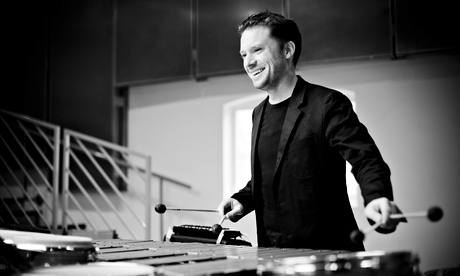
The final concert of Colin Currie’s Metal Wood Skin festival was in some respects the most traditional of the series. The centrepiece was the first UK performance of James MacMillan’s Percussion Concerto No 2, co-commissioned by the Philharmonia Orchestra and Southbank with orchestras in France, the US, Brazil and the Netherlands, where it premiered last July. The conductor was Jaime Martín, a late substitution for Santtu-Matias Rouvali. The programme also featured Kodály’s Dances of Galánta and Mendelssohn’s Scottish Symphony, the latter replacing the originally scheduled excerpts from Prokofiev’s Romeo and Juliet.
The new concerto stands in marked contrast to its predecessor, the religious Veni, Veni, Emmanuel. There are strong echoes of The Berserking in the opening, a worldly, combative toccata that pits Currie against an onslaught of forces, including an imposing array of orchestral percussion. The clang of the Aluphone bells, invented in 2011, features prominently. Sirens sound. There’s a big marimba trio for Currie and two orchestral percussionists. A slow central section, ushered in by measured timpani throbs, is notable for filigree steel-drum patterns against a lyrical viola solo, before the exuberance returns, this time over a big chorale that makes its way through the orchestra. The first section is too long, but the work confirms Currie’s status as an athlete and a star, as well as an outstanding musician.
Martín conducted it with exceptional clarity and pace. Elsewhere, however, the strain of his late substitution occasionally made itself felt. The Kodály was admirably sinuous, its big woodwind solos expertly played, while the Mendelssohn could have done with a bit more refinement and energy. But it was good to hear it again; the work has slipped from view, and this was a reminder of what a fine symphony it is.

